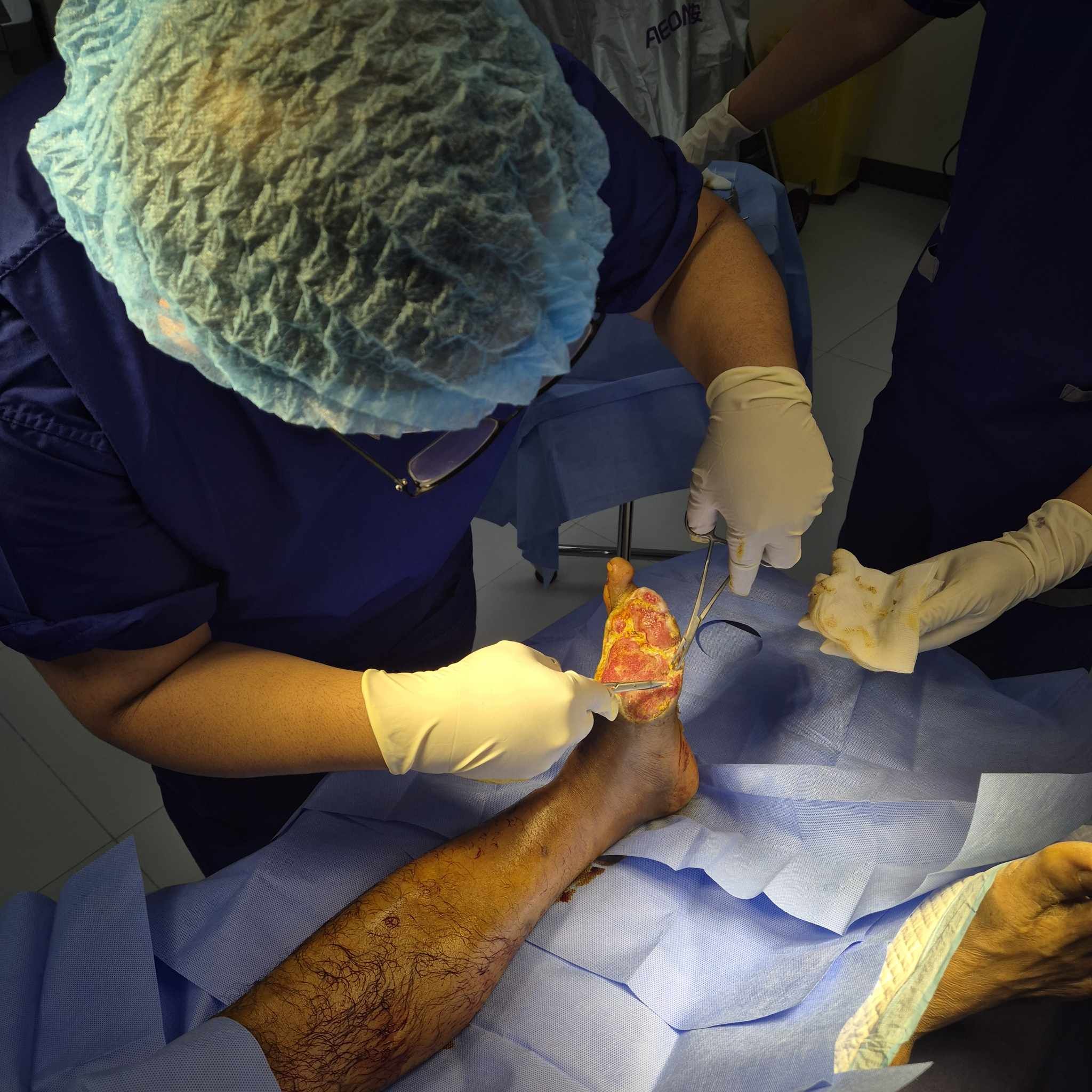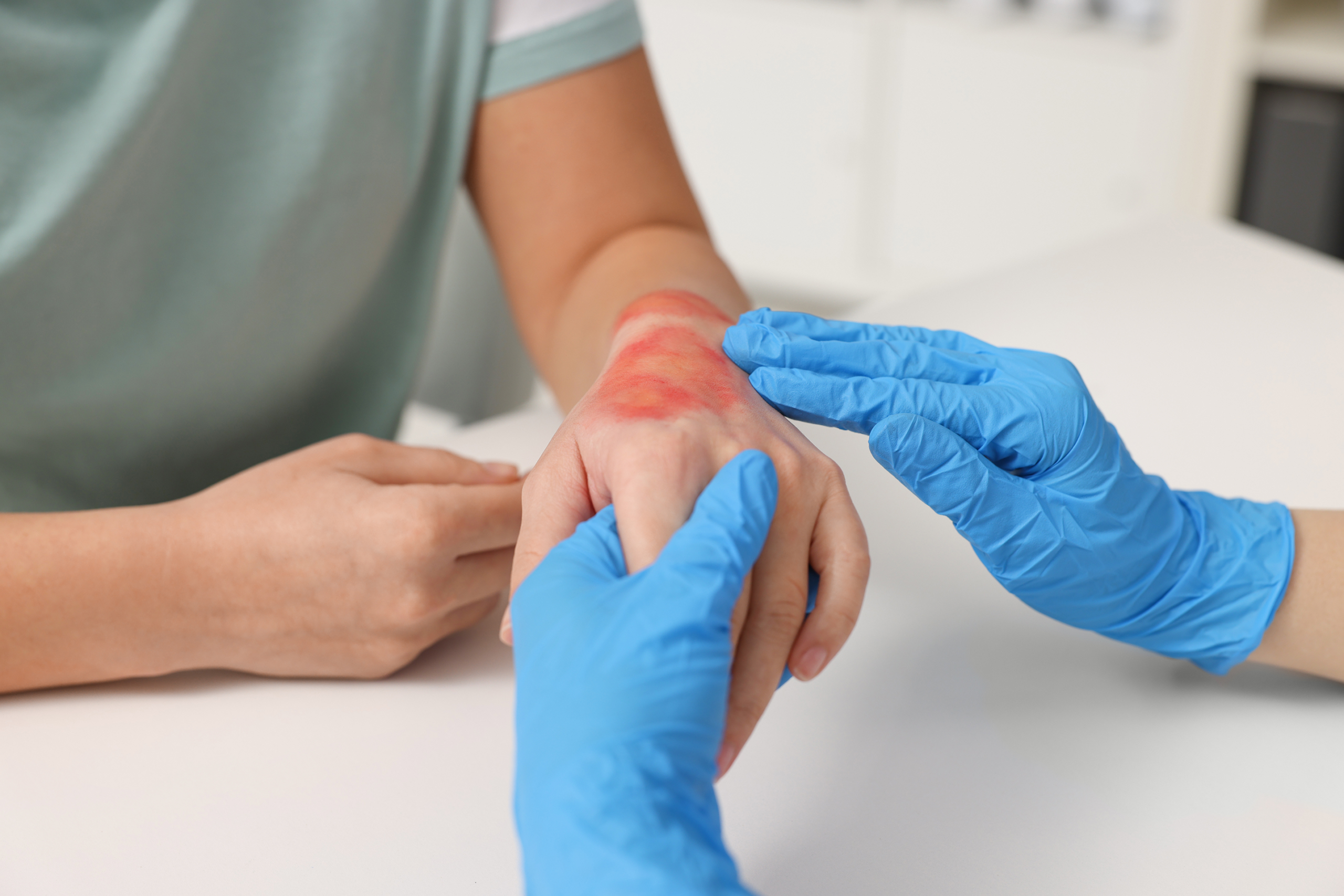Wounds, whether acute or chronic, can significantly impact daily life and overall health. A wound care doctor specializes in diagnosing, managing, and treating all types of wounds, ensuring patients recover safely and efficiently. Patients often underestimate the importance of professional wound management, which can lead to prolonged healing, infections, or complications. Consulting a wound care doctor early can make the difference between slow recovery and complete healing. Advanced therapies, personalized treatment plans, and patient-focused care are essential components of effective wound management.
Understanding Wounds and Their Challenges
Wounds can occur from injuries, surgery, or chronic medical conditions. Acute wounds, such as cuts, abrasions, or surgical incisions, often heal quickly with proper care. Chronic wounds, however, including diabetic foot ulcers, pressure ulcers, and venous insufficiency ulcers, require specialized attention from a wound care doctor. Chronic wounds may persist for weeks or months, often due to underlying health issues like diabetes, poor circulation, or immobility.
Without proper care, wounds can develop severe complications, including infections, necrosis, or systemic health issues. A wound care doctor not only treats the wound but also addresses contributing factors, ensuring long-term recovery. Understanding the type of wound, its causes, and potential risks allows patients to receive the most effective treatment and avoid preventable complications.
When to Consult a Wound Care Doctor
Knowing when to consult a wound care doctor is critical. Signs that a wound requires professional attention include delayed healing beyond two weeks, redness, swelling, pus formation, foul odor, and persistent pain. Patients with chronic conditions like diabetes, cardiovascular disease, or limited mobility should seek consultation immediately when wounds appear, even if they seem minor.
A wound care doctor can assess the wound’s severity, determine underlying causes, and develop a targeted treatment plan. Early intervention not only accelerates healing but also prevents serious complications, such as infections or amputations. Individuals at higher risk, including elderly patients, immobile patients, or those with neuropathy, benefit most from consulting a wound care doctor promptly.
Advanced Wound Care Services
Professional wound management involves a variety of advanced therapies and procedures, each tailored to the patient’s unique needs.
Advanced Wound Assessment
A wound care doctor begins with a thorough evaluation using evidence-based assessment tools. This process examines the wound’s size, depth, tissue type, and signs of infection. Advanced assessment allows the doctor to create a personalized treatment plan, targeting faster healing while reducing the risk of complications.
Debridement Services
Removing dead or damaged tissue is essential for proper wound healing. Wound care doctors employ several debridement techniques, including ultrasonic, mechanical, and enzymatic methods. Debridement not only prepares the wound bed for healing but also decreases bacterial load and reduces the risk of infection.
Negative Pressure Wound Therapy
Negative pressure wound therapy, also known as vacuum-assisted closure, promotes faster recovery by improving blood flow and encouraging tissue regeneration. This therapy is particularly effective for complex wounds, chronic ulcers, and post-surgical wounds. A wound care doctor customizes therapy duration and pressure settings to maximize results while maintaining patient comfort.
Diabetic Foot Ulcer Management
Diabetic foot ulcers pose significant risks for patients with uncontrolled blood sugar or neuropathy. Wound care doctors offer comprehensive management, including proper wound cleaning, infection control, offloading strategies, and patient education. Preventive guidance helps minimize recurrence and prevents complications such as amputation.
Pressure Ulcer Treatment
Bedridden or immobile patients are at risk of pressure ulcers, also known as bedsores. Wound care doctors develop individualized care plans that combine specialized dressings, pressure relief techniques, and ongoing monitoring. These interventions reduce pain, accelerate healing, and prevent further tissue damage.
Venous Insufficiency Ulcer Care
Venous ulcers occur when circulation in the legs is impaired, leading to slow-healing wounds. Wound care doctors use compression therapy, advanced dressings, and circulation improvement strategies to manage venous ulcers effectively. Regular monitoring and patient education are critical for achieving long-lasting relief.
Infection Control and Safety Measures
Proper infection management is central to wound healing. Wound care doctors use targeted antibiotics, antiseptic dressings, and sterile procedures to prevent infections from spreading. Early identification of infection signs, such as redness, heat, swelling, or discharge, allows the doctor to intervene quickly.
Safety protocols, including regular wound assessments, dressing changes, and hygiene measures, are implemented to reduce complications. Patients can trust a wound care doctor to maintain high standards of care while addressing both the wound and the patient’s overall health.
Education and Prevention
Education is a key component of wound management. Wound care doctors provide patients with practical knowledge on wound care techniques, hygiene practices, and lifestyle adjustments. Workshops and one-on-one guidance empower patients to actively participate in their healing journey.
Preventive strategies, such as offloading pressure points, managing blood sugar levels, and improving circulation, help patients avoid recurring wounds. Knowledge from a wound care doctor allows patients to recognize early warning signs and take appropriate action before complications arise.
Choosing the Right Wound Care Doctor
Selecting the right wound care doctor is essential for effective treatment. Look for qualifications, training, and experience in managing chronic and complex wounds. A doctor’s ability to provide patient-focused care, communicate clearly, and develop personalized treatment plans is equally important.
Patients should ask questions about treatment options, healing timelines, and preventive strategies during their consultation. A competent wound care doctor ensures transparency and guides patients throughout the healing process, making them an indispensable partner in recovery.
Benefits of Consulting a Wound Care Doctor
- Faster wound healing through personalized treatment
- Reduced risk of infection and complications
- Advanced therapies such as negative pressure wound therapy
- Comprehensive care for diabetic foot ulcers, pressure ulcers, and venous ulcers
- Patient education for long-term prevention and self-care
- Professional guidance for complex and chronic wounds
Takeaway
A wound care doctor plays a vital role in managing and treating wounds, from simple cuts to chronic ulcers. Professional assessment, advanced therapies, infection control, and patient education combine to accelerate recovery, prevent complications, and improve quality of life. Seeking care from a qualified wound care doctor ensures that wounds are treated effectively while empowering patients with the knowledge to prevent future issues.
Frequently Asked Questions (FAQ)
What types of wounds does a wound care doctor treat?
A wound care doctor manages chronic wounds, diabetic foot ulcers, pressure ulcers, venous ulcers, surgical wounds, and traumatic injuries.
How long does wound healing take with specialist care?
Healing time depends on wound type, severity, and underlying health conditions. Chronic wounds may require weeks or months, while acute wounds usually heal faster under professional care.
Is negative pressure wound therapy safe?
Yes, negative pressure wound therapy is safe when administered by a wound care doctor. Therapy is customized to each patient’s condition and monitored regularly to ensure effective and safe healing.
Can diabetic patients prevent foot ulcers?
Yes, preventive measures such as proper footwear, daily foot inspections, and blood sugar control significantly reduce the risk of diabetic foot ulcers. Regular consultation with a wound care doctor further minimizes complications.
Do all wounds require a wound care doctor?
Minor wounds may heal with basic care, but persistent, chronic, or complex wounds benefit greatly from professional management by a wound care doctor to avoid complications and ensure proper healing.










